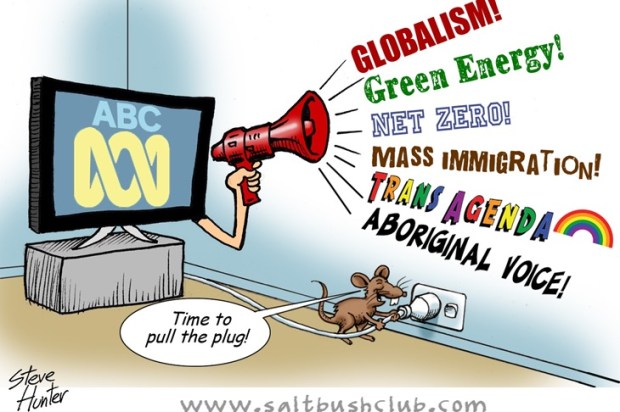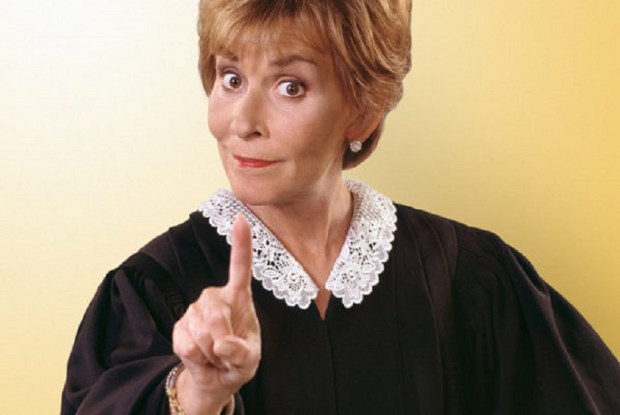 What limited protection we have in Australia for free speech, is based on the concept of the ‘reasonable person’. In other words, when it comes down to the crunch, the courts rely on this fictitious ‘reasonable person’ to determine whether words have hurt somebody’s feelings enough to warrant some form of punishment. But who is this ‘reasonable person’ anyway?
What limited protection we have in Australia for free speech, is based on the concept of the ‘reasonable person’. In other words, when it comes down to the crunch, the courts rely on this fictitious ‘reasonable person’ to determine whether words have hurt somebody’s feelings enough to warrant some form of punishment. But who is this ‘reasonable person’ anyway?
A ‘reasonable person’ is a legal fiction created in order to help set an objective standard of behaviour against which we can all be equally judged. It stands to reason then that this ‘reasonable person’ is not an average person, but an ideal and a vague one at that. They are somebody who is risk averse, and who has the ability to assess the most prudent course of action in any set of circumstances. They must also have a moral viewpoint, a set of beliefs that would deem certain types of behaviours to be unacceptable. Seeing as the ‘reasonable person’ is work of fiction, it is likely that what he or she finds unacceptable is based on the prevailing social norms, and is susceptible to the personal opinions and worldview of the presiding judge in any given case. When a person is being judged based on words written or uttered, it is to this ‘reasonable person’ that we must defer.
Although the ‘reasonable person’ standard may be useful in determining cases wherein somebody incurs loss or harm due to negligent behaviour, it is less than ideal when used to determine degrees of offence given. In today’s world where offence is so easily taken, it is almost to be expected that the modern ‘reasonable person’ would find all manner of speech offensive. If certain opinions or speech are found to be those that a ‘reasonable person’ finds offensive, the only truly correct response that protects freedom of speech is to say ‘so what?’
History is littered with cases of unreasonable people pushing the boundaries of contemporary acceptable behaviour, and causing offence along the way. Socrates, one of the founders of Western philosophy, was executed for not respecting the gods and for making prominent Athenians look stupid when he questioned them about their beliefs. He would have failed the ‘reasonable person’ test of the day; his ideas were offensive and he upset people. Galileo upset the church with his theory of a heliocentric solar system, his writing was sanctioned and he died under house arrest; certainly a ‘reasonable person’ of the day would have agreed that Galileo’s ideas were offensive. Black activist Malcolm X paid the ultimate price for forging his own path and speaking out against his former allies the Nation of Islam; a ‘reasonable person’ in the 1960s may have thought he brought it upon himself. These people and countless others have spoken out against the prevailing wisdom, offending people along the way, and we are the better because of it.
There are many social and political hot potatoes at present, and freedom means being able to debate them without any fear of legal ramifications. If somebody can be sued $250,000 for saying on Facebook ‘Just got kicked out of the unsigned indigenous computer room. QUT stopping segregation with segregation?’ then this has a chilling effect on what opinions people are willing to voice. Many people have legitimate concerns about a whole host of issues including same-sex marriage, indigenous issues, immigration, radical Islamism and the role of schools in teaching kids about sexuality. History may prove for example that affirmative action policies had a detrimental effect on race relations, and yet today somebody is being put through the wringer for making facetious comments that allude to this very idea. Conversations need to be had freely, with the knowledge that cherished ideas will be challenged, sacred cows criticised, and feelings hurt. The best ideas will win hearts and minds through intelligent debate that includes the ability to speak freely and without restraint.
In attempting to punish those who don’t have a fashionable opinion or those that question the current dogma, what we as a society are saying is that we don’t trust people to think for themselves and that they are so fragile that they can’t handle hearing something they may not agree with. It is an attempt to stop people hearing the ‘wrong’ opinion in case their feeble minds are swayed, or that somebody might feel upset or offended. It results in people self-censoring just in case. Do we really fear words so much that we seek to punish those with opinions different to our own?
In the words of Christopher Hitchens, ‘The urge to shut out bad news or unwelcome opinions will always be a very strong one, which is why the battle to reaffirm freedom of speech needs to be refought in every generation.’ There is no place for a vague ‘reasonable person’ test that is used to measure speech. In Australia today we must fight to not only rid ourselves of laws that make insults and causing offence unlawful but against the prevailing idea that having those laws in the first place is perfectly OK.
Nicola Wright is a writer with LibertyWorks
Got something to add? Join the discussion and comment below.
Get 10 issues for just $10
Subscribe to The Spectator Australia today for the next 10 magazine issues, plus full online access, for just $10.
























Comments
Don't miss out
Join the conversation with other Spectator Australia readers. Subscribe to leave a comment.
SUBSCRIBEAlready a subscriber? Log in